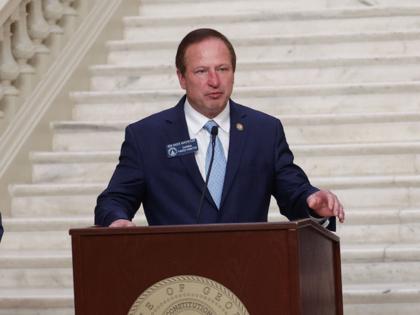Four takeaways from failed legislative effort to change TV, film tax credit
Published in Business News
During much of this year’s Georgia legislative session, a contingent of Republican legislators were determined to rein in the state’s largest corporate tax break program which benefits film and TV producers such as Netflix and Disney.
The House bill 1180 that came out in February would have added more hurdles to receive the maximum 30% tax credit, such as incentivizing producers to work in rural counties or hire more Georgia-based crew. It also limited how many tax credits could be transferred in a given year to 2.5% of the entire state budget, which would currently be around $930 million.
For a time, entertainment lobbyists were resigned that some semblance of this bill would pass and worked to ensure any changes wouldn’t encourage Lionsgate and NBCUniversal to move more productions to places like Canada or England, which also have generous tax credit systems.
But after legislators in the Senate made some ill-fated changes earlier this month, the bill ultimately died on the vine Thursday.
The new provisions would have given favored status to soundstages like Assembly Atlanta in Doraville, Trilith Studios in Fayetteville and Shadowbox Studios in Atlanta over others like Electric Owl in Atlanta, Eagle Rock in Norcross and Stone Mountain and Tyler Perry Studios in Atlanta. Even last second changes on Thursday that would only trigger the tax credit transfer cap under extreme circumstances couldn’t muster enough support on the Senate side as the clock ran out.
Kasey Carpenter, a Republican House representative who pushed for the changes, noted in a text to The Atlanta Journal-Constitution on Friday that in the end, “the Senate was not interested.” Other priorities, such as changes in immigration and voting rights, took precedent this year.
Here are four takeaways about the efforts to modify the tax credit system:
1. The Georgia film business gets to enjoy the status quo
The current film and TV tax credit system, which passed in 2008, will remain as is for now. The only previous change featured stronger auditing requirements starting in 2021.
The program’s relative stability, simplicity and generosity has made it appealing to TV and film producers for more than 15 years. Hundreds of TV shows and films now shoot in Georgia each year providing tens of thousands of jobs and more than $4 billion in annual direct spending from studios.
...continued
©2024 The Atlanta Journal-Constitution. Visit at ajc.com. Distributed by Tribune Content Agency, LLC.







Comments